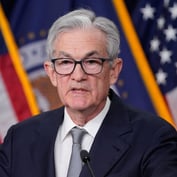Some investors in emerging markets may have considered Argentina and moved on, judging the dangers too great, while others have lingered, courting the bond markets and their potential for higher returns. Those still on the fence might want to consider these three top challenges to investors as they make their decisions, and consider the fact that they may present opportunities as well.

1. Recession. Argentina battled its way back from a debt crisis in 2001 that saw it default on some $95 billion in bonds. While the going was tough at first after the default—the Argentine economy contracted by 4.4% in 2001 and then shrank even more in 2002, by a whopping 10.9%—it actually managed to return to growth in 2003, since which time it’s averaged expansion of 6.2% annually. Not a bad accomplishment.
However, for the first time in 10 years, Argentina’s steady growth has slowed enough to push the country into recession. While it grew by 3% last year, in Q4 it lost ground and the situation did not improve in January. The Argentine economy is now expected to contract by 1% in 2014, shoved in that direction in part by a currency devaluation at the beginning of the year that has led to the second threat: inflation.

2. Inflation. Argentina was chugging along relatively well until that slowdown at the end of 2013. But when the economy slowed, the country’s response in January was to devalue its peso by a hefty 20% and bump up interest rates. That made things worse; it hit consumer spending hard—which in turn fueled the growing weakness in its economy.
Inflation has grown as everything from imports to houses to food has become far less affordable, and consumers have cut back, even shunning beef consumption in favor of cheaper meats—according to the Argentine agriculture ministry, beef sales in Q1 dropped by more than 5%. Economists say it’s going to get worse, with predictions of the inflation level for the year ranging from 30–45%. Wages, of course, have not kept pace, so foreseeing a worsening downturn hardly needs a crystal ball.

3. High risk. This one’s a bit more complex, coming as it does from a multitude of causes. Argentina has a bit of a bad name in the international community for such actions as its massive default (it’s still negotiating with holdouts who refused to accept a debt restructuring that offered bonds at a 75% discount) and its seizure of Spanish oil company Repsol’s stake in YPF SA, the largest producer of crude oil in the country (it also seized private pension funds and an airline a few years ago).
However, in March, after Argentina finally reached a settlement for $5 billion with Repsol over the YPF seizure and made some progress in discussions with the Paris Club over some $9.7 billion that the country still owes its member nations, it said it had received offers of loans from financial institutions that it declined to name.








 June 05, 2014 at 09:20 PM
June 05, 2014 at 09:20 PM










